Flashcards for NEET Chemistry are designed to boost your NEET preparation. Find below flashcards for the chapter “Polymers”. These flashcards are prepared as per the NEET syllabus. These are helpful for aspirants of NEET and other exams, during last-minute revision. It covers all the important points that are frequently asked in the exam. Check BYJU’S, for the full set of Flashcards and Study material for NEET Chemistry.

Download PDF of NEET Chemistry Flashcards for Polymers
|
Name of the NEET Sub-section |
Topic |
Flashcards Helpful for |
|
Chemistry |
Polymers |
NEET Exams |
|
Polymers |
|
|
Nylon 6, 6 |
Polymer of hexamethylene diamine and adipic acid It is a condensation polymer Used in making sheets, bristles for brushes and in the textile industry |
|
Linear Polymers |
High-density polythene (HDPE), polyvinyl chloride, etc. |
|
Branched-chain Polymers |
Low-density polythene (LDPE) |
|
Cross-linked or Network Polymers |
Bakelite, melamine, etc. |
|
Copolymers |
Addition polymers of two different monomers E.g. Buna-S, Buna-N, etc. |
|
Buna-S |
It is a copolymer, made up of 1, 3-Butadiene and Styrene Used to make auto tyres, floor tiles, footwear components, cable insulation, etc. |
|
Condensation Polymers |
They are formed by condensation reactions, wherein the elimination of molecules like water, alcohol, hydrogen chloride, etc. take place E.g. terylene (dacron), nylon 6, 6, nylon 6, etc. |
|
Elastomers |
They are elastic due to weak intermolecular forces E.g. buna-S, buna-N, neoprene, etc. |
|
Fibres |
They have high tensile strength due to strong intermolecular forces like hydrogen bonding E.g. polyamides (nylon 6, 6), polyesters (terylene), etc. |
|
Thermoplastic Polymers |
They soften on heating and harden on cooling, and can be reused E.g. polythene, polystyrene, polyvinyl, etc. |
|
Thermosetting Polymers |
They become infusible after heating and cannot be reused E.g. bakelite, urea-formaldehyde resins, etc. |
|
Low-Density Polythene |
Ethene is polymerised under high pressure (1000 to 2000 atm) and at a temperature of 350-570 K in the presence of dioxygen or a peroxide catalyst Used in making insulation of wires, squeeze bottles, toys and flexible pipes |
|
High-Density Polythene |
Ethene is polymerised under low pressure (6-7 atm) and at a temperature of 333-343 K in a hydrocarbon solvent. Triethylaluminium or titanium tetrachloride (Ziegler-Natta catalyst) are used as a catalyst Used in making buckets, dustbins, bottles, pipes, etc. |
|
Polytetrafluoroethene (Teflon) |
Polymer of tetrafluoroethene It is used for making the non-stick coating of utensils, oil seals and gaskets, etc. |
|
Polyacrylonitrile |
Addition polymer of acrylonitrile. Peroxide is used as a catalyst Used in making orlon or acrilan as a substitute for wool |
|
Terylene or Dacron |
It is a condensation polymer of ethylene glycol and terephthalic acid Used as glass reinforcing materials in safety helmets and for blending with cotton and wool fibres to make them crease-resistant, etc. |
|
Nylon 6 |
It is produced by heating caprolactam with water at a high temperature Used in making tyre cords, fabrics and ropes |
|
Bakelite |
The polymer of phenol and formaldehyde Used for making combs, electrical switches, phonograph records and handles of utensils, etc. |
|
Melamine |
The polymer of melamine and formaldehyde Used to make unbreakable crockery |
|
Natural Rubber |
It is a linear polymer of isoprene (2-methyl-1, 3-butadiene) |
|
Neoprene |
It is a polymer of chloroprene Used to make conveyor belts, gaskets and hoses |
|
Buna – N |
It is a polymer of 1, 3- butadiene and acrylonitrile It does not react with organic solvent and petrol, thus used in making oil seals, tank lining, etc. |
|
Poly β-hydroxybutyrate – co-β-hydroxy valerate (PHBV) |
It is a polymer of 3-hydroxybutanoic acid and 3- hydroxypentanoic acid It is a biodegradable polymer and is used in orthopaedic devices, implants, controlled release of drugs, etc. |
|
Nylon 2–Nylon 6 |
It is a biodegradable polymer of glycine and aminocaproic acid |
Get access to the full set of flashcards for NEET Chemistry, only at BYJU’S.
|
Also check: |
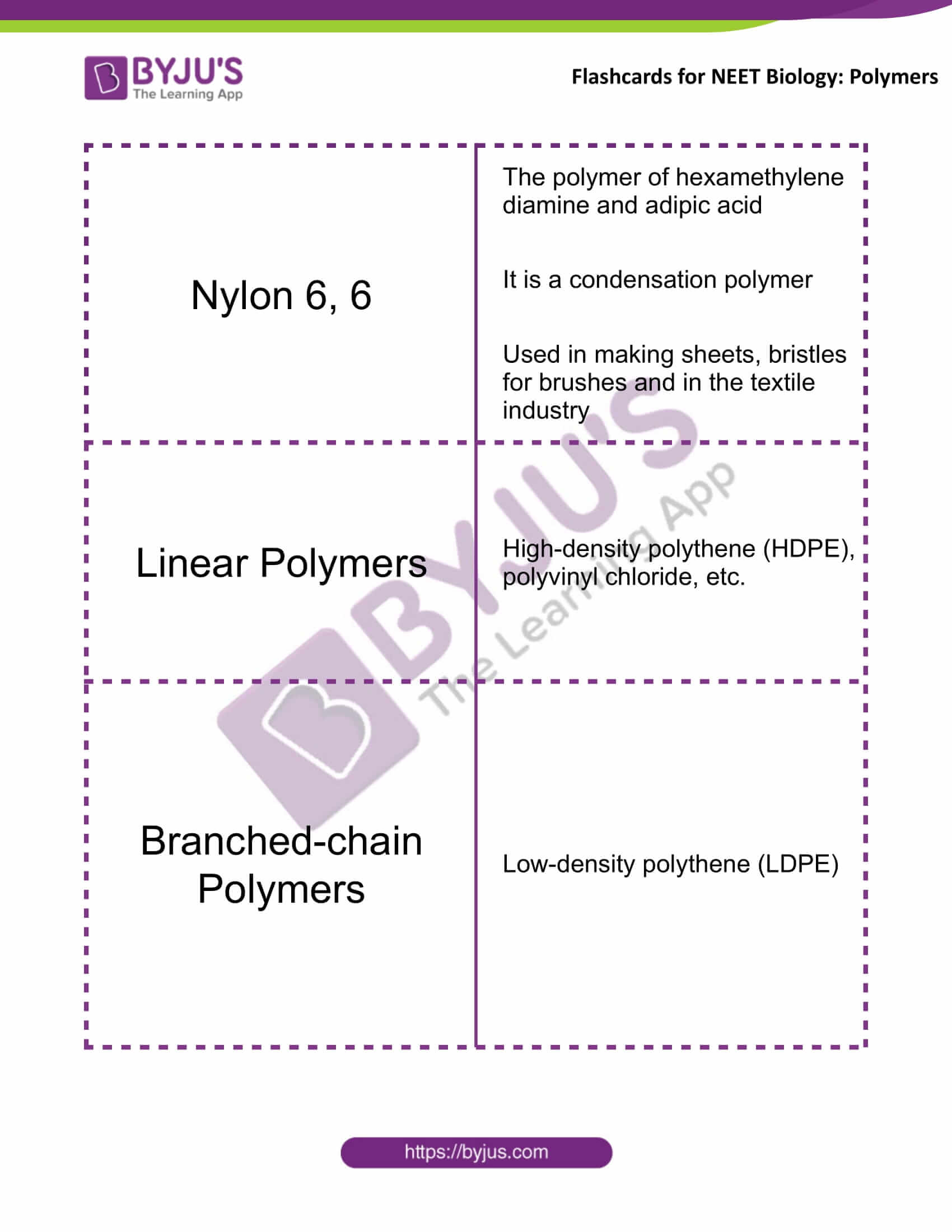
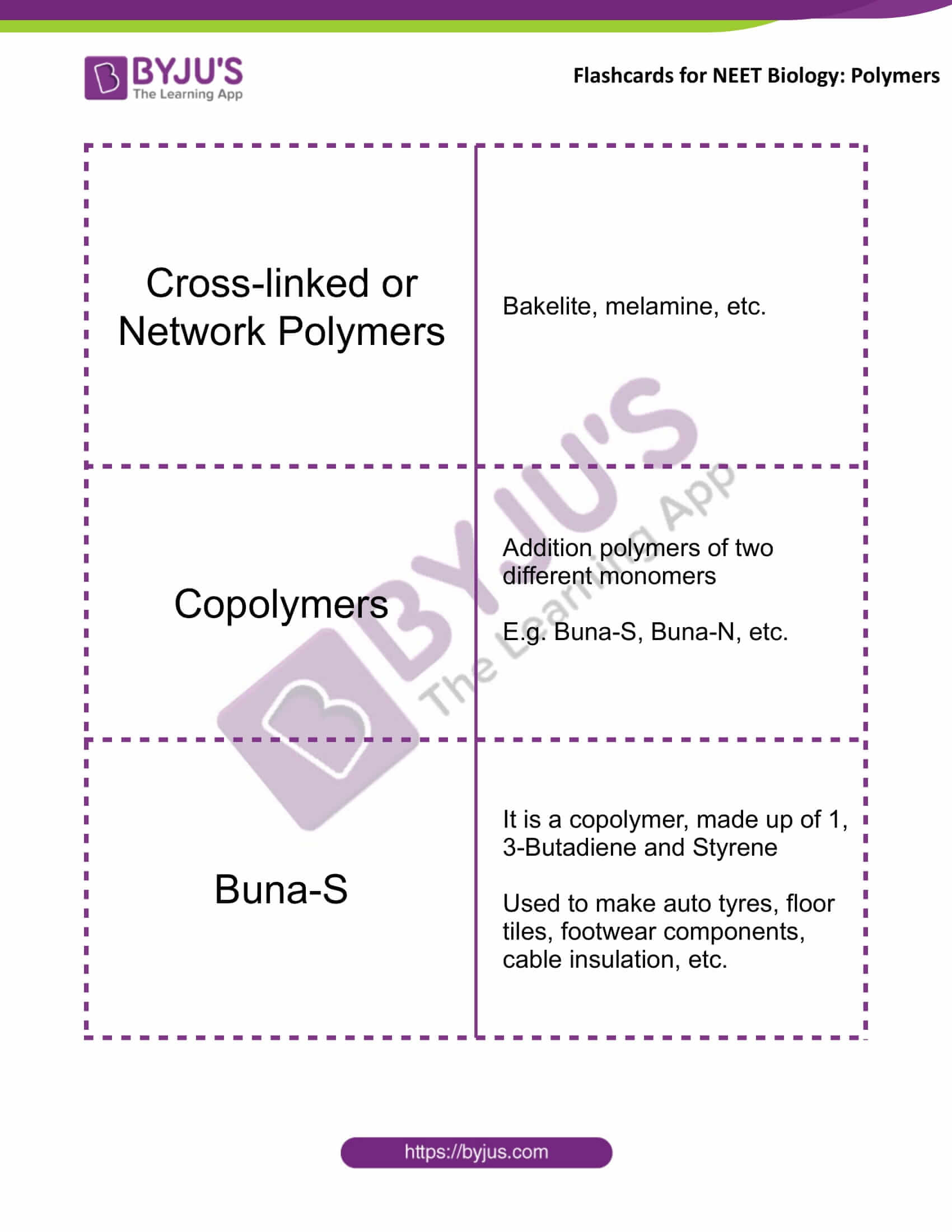
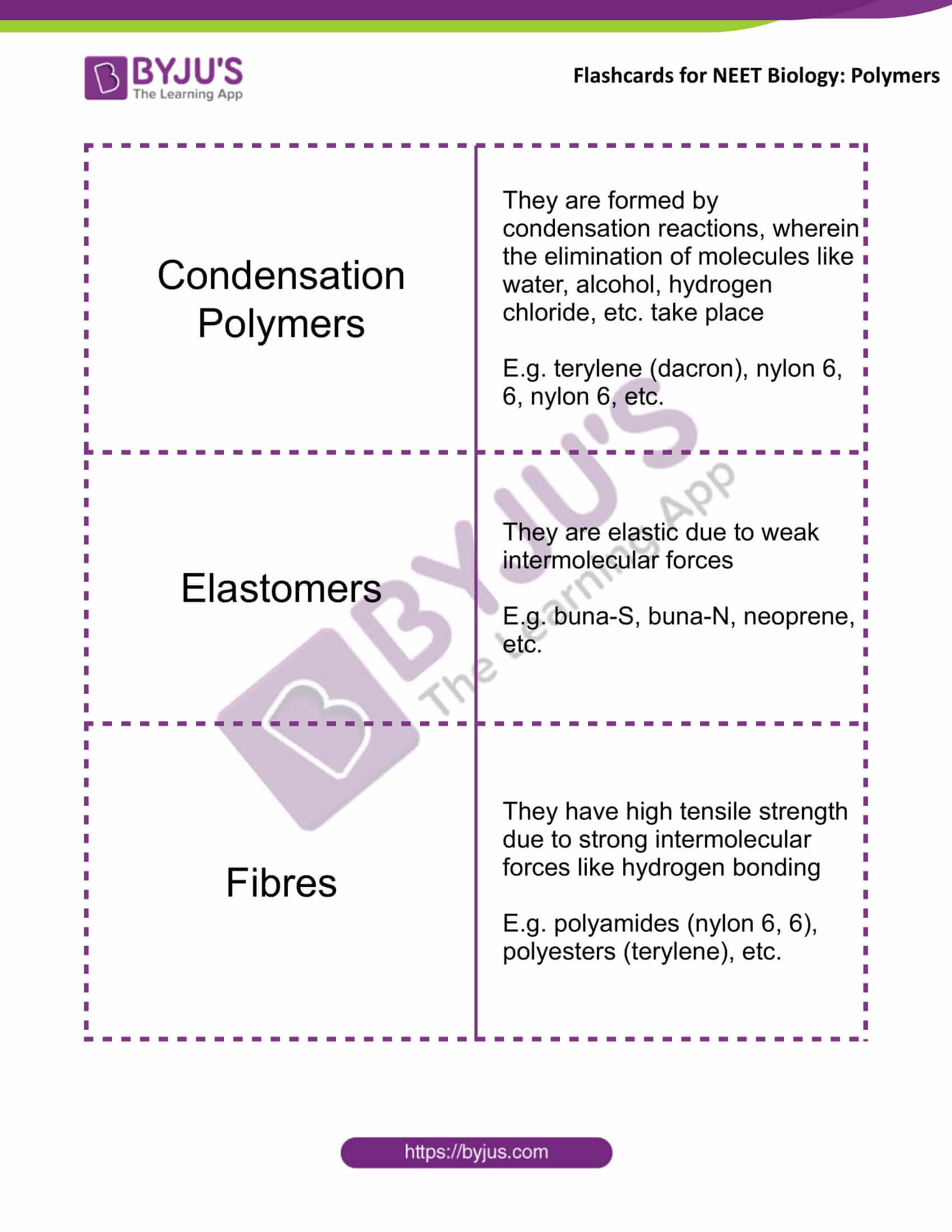
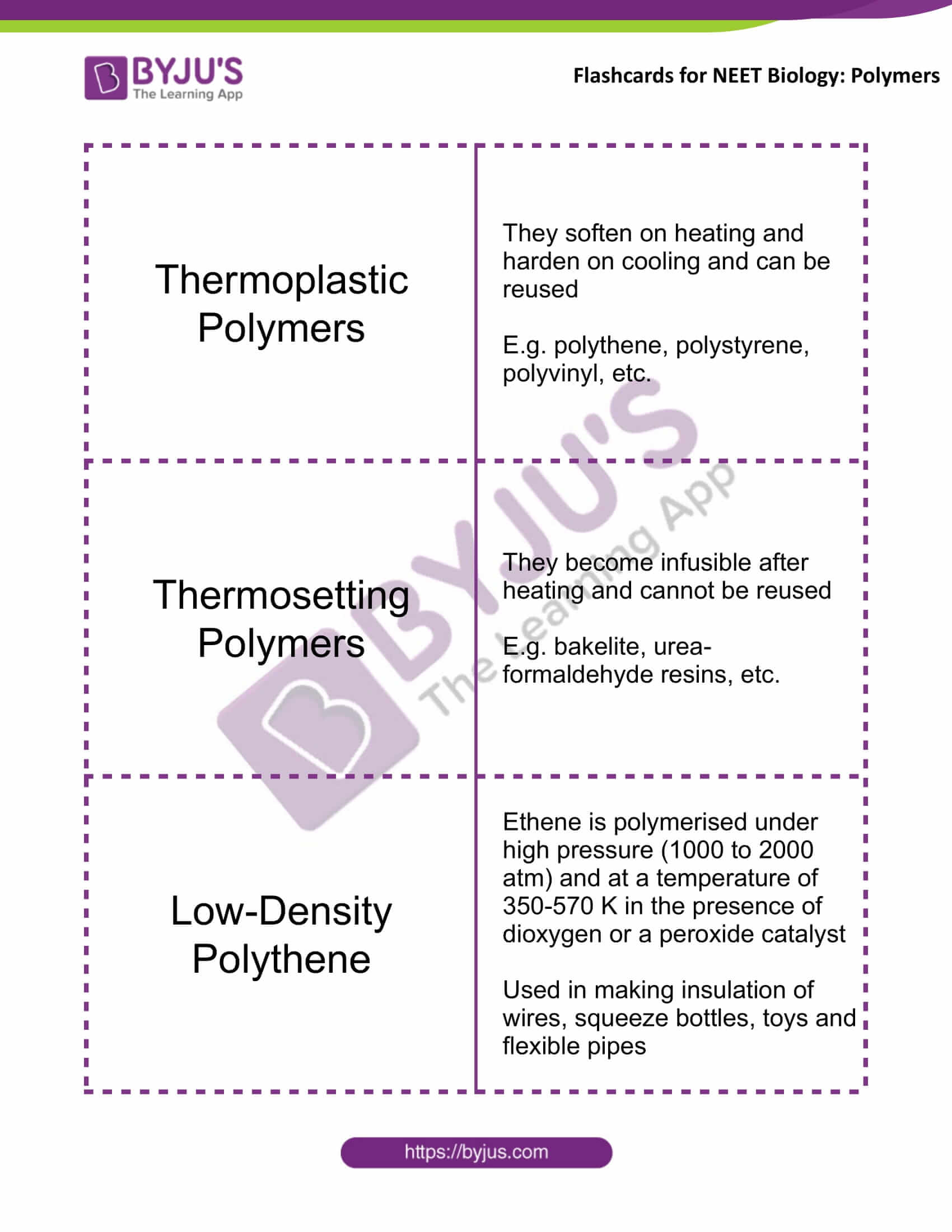
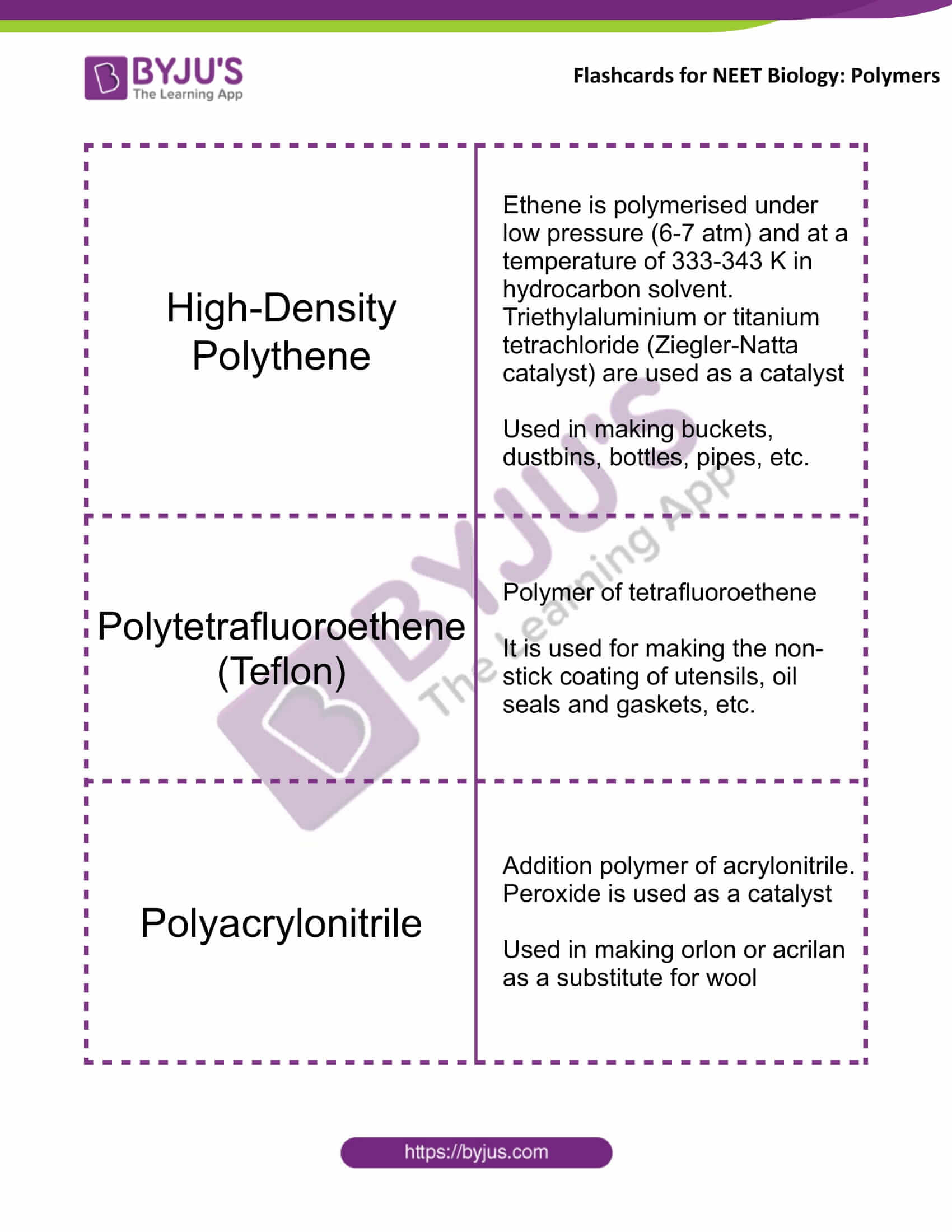
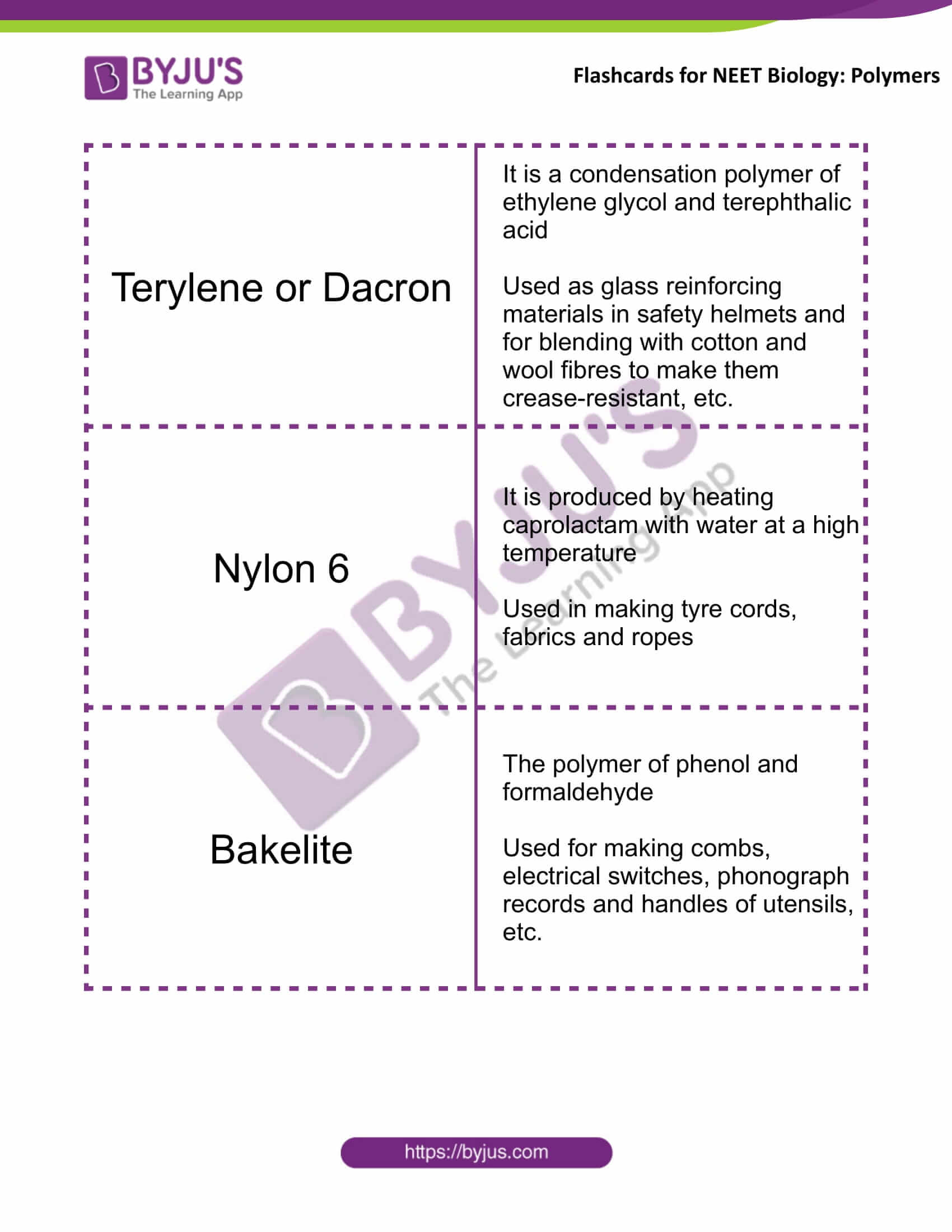
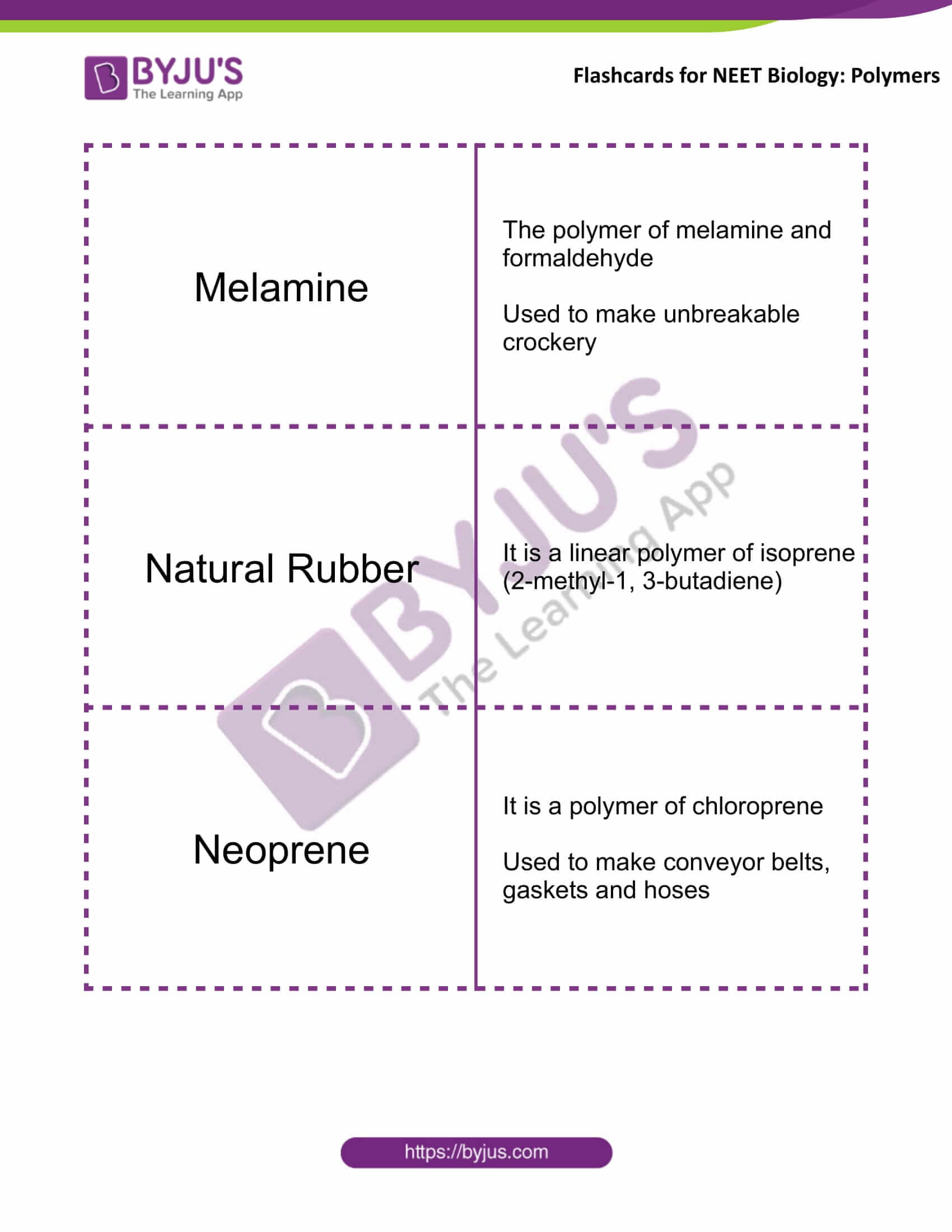
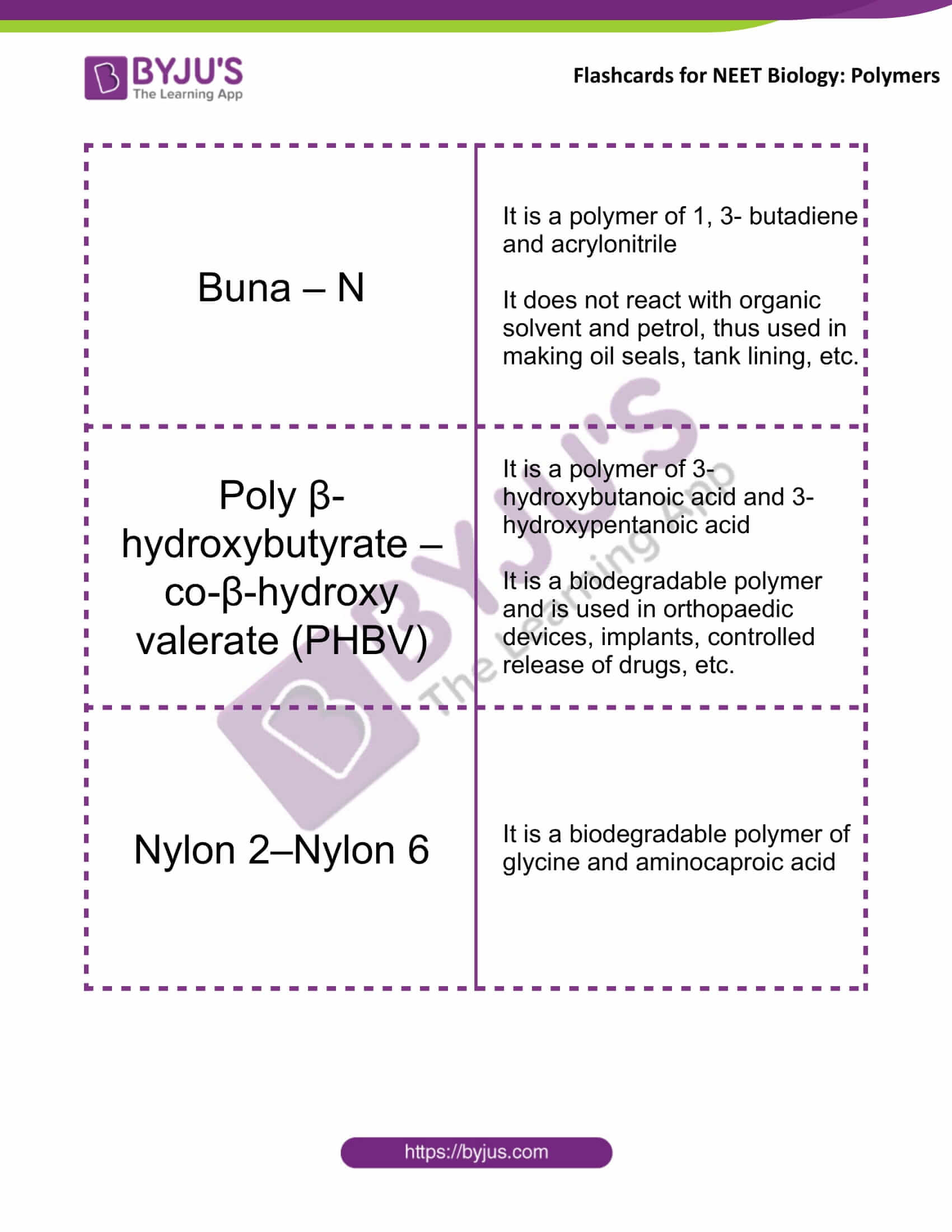
Comments